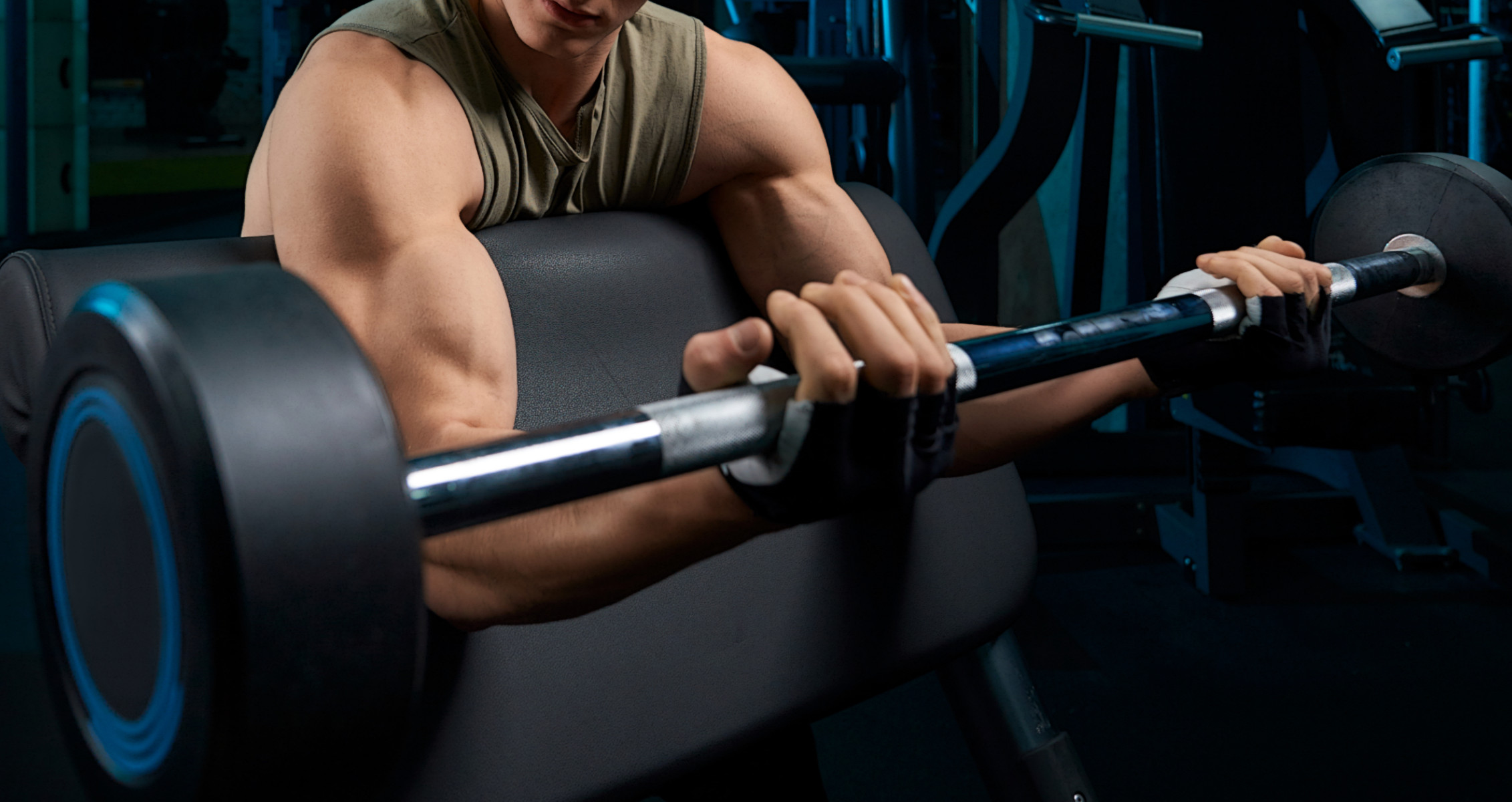How to Retain Muscle While Dieting
Everybody talks about losing weight this and losing weight that, but what we all really mean without knowing it is we’re all trying to lose fat specifically.
Fat is inflammatory adipose tissue that increases your risk of disease and decreases your risk of landing a date. Hey, I’m just being honest.
But anyways, fat is the tissue you want to lose. Weight is simply an arbitrary word for mass. If you diet improperly, you may lose weight, but you may also lose muscle which is not ideal.
Muscle improves your health, strength, and makes you look good naked. You want more of it. So the goal of dieting isn’t simply to lose weight. The goal of dieting is to lose fat tissue while retaining as much muscle tissue as possible.
This isn’t always easy because to lose fat, you have to eat in a caloric deficit meaning your body is taking in fewer calories than it can burn off. It is in an inevitable state of breakdown which also increases the chances of muscle loss.
Fortunately, there are things you can do to protect your precious muscle mass and force fat tissue to exclusively come off your body instead.
Don’t Crash Diet
You know all those people who succumb to juice cleanses and overnight fasts? Yeah, don’t be one of them. Less food means faster weight loss, but people forget that food is fuel. You need it to construct muscle tissue, repair tissue damage, and fuel performance.
Extremely low-calorie diets are not favorable for muscle retention especially in lean individuals who have a lot of muscle to lose (1).
Calories and protein are building blocks to your muscles. Protein specifically does the work, but more calories spares muscle breakdown. This is why you have to keep protein high, but you can’t drop calories too low either. There’s a time and place for aggressive dieting, but more calories is generally favorable.
Protein should be set to at lest 0.8 grams per pound of bodyweight daily. Calories should be low enough to cause weight loss, but not so low that you lose more than 2% of bodyweight each week. In addition avoid any sort of calorie cycling that forces you to eat minimal food on specific days.
You want consistent calories especially if you’re training frequently. In addition, eating a diet rich in vitamins and minerals is ideal to maintain health, bodily functions, and muscle mass (2). Sure, you can lose weight by eating donuts in a deficit, but you’ll get better results eating mostly whole minimally processed foods.
Think foods that come from the ground or has a face. Foods like potatoes, grains, veggies, fruits, beef, chicken, and fish.
 Strength Train
Strength Train
Your body adapts to the stresses placed upon it. These stresses are often called a stimulus or as I like to call it, a signal. Every signal will notify your body to adapt. A bear running towards you will signal for you run away as you pee your pants.
Someone opening their arms and approaching you will signal to you to hug them.
Similarly, your body needs a signal strong to warrant muscle retention. That’s where lifting comes in. Research finds that any form of exercise can help retain muscle in obese beginners, but most of you don’t fit that category (3).
For leaner, more advanced lifters, you have to keep lifting. Lifting has the strongest muscle building signal, more than cardio, pilates, yoga, or any odd fitness trend out there (4).
Lifting causes muscle turnover which is simply a fancy word meaning muscle breakdown and muscle construction. If muscle breakdown exceeds muscle construction, you lose muscle. So while the signal from strength training is critical, there’s a science to it. Let me elaborate.
Optimize Your Training
2 aspects of training will optimize your muscle retention. The first is volume.
Why is volume so important? Volume is the dose of stress you apply to your muscles. You need some volume, but more volume also means more muscle breakdown. Research finds that too much volume for a muscle group within a session can be pointless or be counterproductive (5). You start accumulating too much fatigue and muscle breakdown.
In addition, too much overall volume can hinder your recovery. This is why how much work you do during a diet is clearly different than how much work you do during a bulk. Starting your diet may require you to drop your volume down or redistribute it so you’re not doing so much for one muscle within a session.
The other aspect to optimize your training is progressive overload. Because your food intake is lower during a diet, your recovery is compromised. This simply means you’ll make slower performance progress, but it doesn’t mean you should be plateaued.
In fact, your volume might be setup appropriately, but to guarantee muscle retention, you need overload. Simply put, you need to find ways to beat your performance over time whether that’s increasing weight every week, every 2 weeks, or eating a bit more food to fuel your performance.
By increasing your performance, you’re increasing the strength of the signal your muscles experience which forces adaptations. This adaptation occurs after your muscles have constructed more muscle proteins than it breaks down which we already established is a good thing.
Keep in mind, you can’t get complacent. As your muscles adapt, the stress that once force that adaptation may not be strong enough anymore. This is why adding weight, reps, or improving your performance becomes a never-ending quest.
It’s okay though. Your physique will thank you in the long run.
Sleep Like Sloth
Sleeping is seen as a lazy thing, but in the world of fitness, sleeping is a game changer. Sleeping where you recover while your body produces anabolic hormones. So we already talked about sending the necessary signal for adaptation. That signal is a stressor and you must recover from that stress.
If you can’t recover for your next workout, you can’t keep adding overload or worse you have piss poor workouts.
Research finds that the muscle to fat ratio loss during diets are dramatically different between people who sleep sufficiently compared to those who are sleep deprived (6).
This may be the least sexy and obvious thing on this list, but it’s importance is paramount. If you struggle with sleep, try one of these tips:
- Sleep and wake at a consistent time.
- Keep your room dark. Use black electrical tape to cover any lights or invest in an eye mask.
- Keep your room sound proof. Use ear plugs if you have to.
- Shut off all electronics and dim your lights an hour or two before bed.
- Do something relaxing before bed like reading, journaling, stretching, or foam rolling.
- Supplement with 3mg of melatonin and 400 mg of magnesium citrate if you need to.
Feed the Muscle, Starve the Fat
Anytime you embark on weight loss, keep in mind, what you lose is deeply important. Lose muscle and your physique gets worse. Lose fat and your physique gets better.
If you want to starve your fat away, you have to eat in a deficit, but don’t crash diet. Diet intelligently with whole foods, plenty of protein, and a reasonable amount of calories.
In addition, you need to signal to your body to retain or build more muscle with optimal strength train. Adjust your volume appropriately and keep setting PR’s. Sleep is the glue that hold it all together keeping hormones healthy and repairing your muscles.
References
- Garthe . “Effect of Two Different Weight-Loss Rates on Body Composition and Strength and Power-Related Performance in Elite Athletes.” International Journal of Sport Nutrition and Exercise Metabolism, U.S. National Library of Medicine, pubmed.ncbi.nlm.nih.gov/21558571/.
- Biolo, SP. Maggi, et al. “The Muscle Protein Synthetic Response to Meal Ingestion Following Resistance-Type Exercise.” Sports Medicine, Springer International Publishing, 1 Jan. 1995, link.springer.com/article/10.1007/s40279-019-01053-5.
- Calbet, Jose A L, et al. “Exercise Preserves Lean Mass and Performance during Severe Energy Deficit: The Role of Exercise Volume and Dietary Protein Content.” Frontiers in Physiology, Frontiers Media S.A., 24 July 2017, www.ncbi.nlm.nih.gov/pmc/articles/PMC5522839/.
- Willis, Leslie H, et al. “Effects of Aerobic and/or Resistance Training on Body Mass and Fat Mass in Overweight or Obese Adults.” Journal of Applied Physiology (Bethesda, Md. : 1985), American Physiological Society, 15 Dec. 2012, www.ncbi.nlm.nih.gov/pmc/articles/PMC3544497/.
- Rebaï. “Reducing Resistance Training Volume during Ramadan Improves Muscle Strength and Power in Football Players.” International Journal of Sports Medicine, U.S. National Library of Medicine, pubmed.ncbi.nlm.nih.gov/24048913/.
- Nedeltcheva, Arlet V, et al. “Insufficient Sleep Undermines Dietary Efforts to Reduce Adiposity.” Annals of Internal Medicine, U.S. National Library of Medicine, 5 Oct. 2010, www.ncbi.nlm.nih.gov/pmc/articles/PMC2951287/.

 Strength Train
Strength Train






